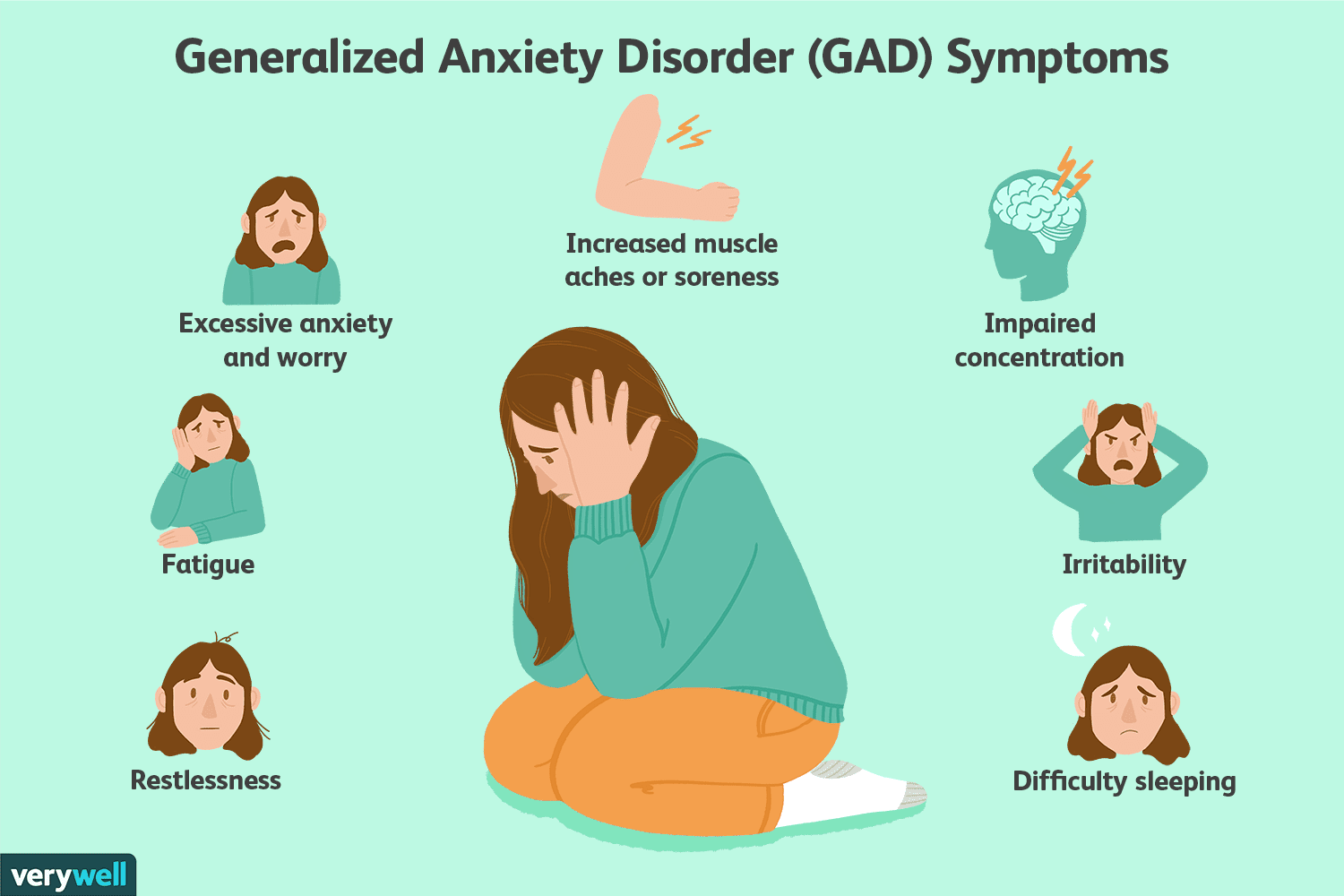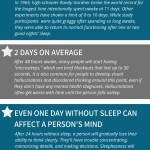Feeling a little on edge lately? Perhaps you’ve been experiencing a racing heart, sweaty palms, or a constant sense of worry. If so, you might be wondering, “What are the common symptoms of anxiety?” Well, you’ve come to the right place! In this article, we’ll explore the telltale signs that indicate you might be dealing with anxiety. So grab a cup of tea, sit back, and let’s dive into the world of anxiety symptoms.
Anxiety can manifest itself in various ways, and everyone’s experience is unique. However, there are some common symptoms that many people with anxiety tend to encounter. One of the most common signs is persistent worry or fear about everyday situations. Imagine feeling like you’re constantly on high alert, as if your mind is a hamster running on a never-ending wheel. This feeling of unease can be overwhelming and exhausting. Additionally, physical symptoms such as rapid heartbeat, shortness of breath, and trembling are often experienced alongside the mental and emotional aspects of anxiety. It’s like your body is saying, “Hey, I’m here to join the anxiety party too!” So, if you’ve been noticing any of these symptoms, it’s essential to pay attention to your mental well-being and seek support if needed.
What are the Common Symptoms of Anxiety?
Anxiety is a common mental health condition that affects millions of people worldwide. It is characterized by feelings of fear, worry, and unease. While it is normal to experience occasional anxiety, excessive and persistent anxiety can interfere with daily life and overall well-being. Understanding the common symptoms of anxiety can help individuals recognize and seek appropriate support.
Physical Symptoms of Anxiety
Anxiety can manifest in various physical symptoms, which may include:
1. Rapid Heartbeat: One of the most common physical symptoms of anxiety is a rapid heartbeat. When experiencing anxiety, the body’s natural response is to release stress hormones, which can increase heart rate.
2. Shortness of Breath: Anxiety can cause individuals to feel as though they are unable to catch their breath or are suffocating. This can be attributed to the body’s automatic response to anxiety, which includes increased breathing and a decrease in deep breaths.
3. Sweating: Excessive sweating is another physical symptom of anxiety. When the body is in a heightened state of anxiety, it may produce more sweat as a response to stress.
4. Trembling: Anxiety can lead to trembling or shaking, particularly in the hands. This physical symptom is a result of the body’s fight-or-flight response, which prepares the body for potential danger.
5. Muscle Tension: Anxiety often causes muscle tension, leading to feelings of stiffness or soreness. This tension can occur in various parts of the body, such as the neck, shoulders, or jaw.
6. Upset Stomach: Many individuals with anxiety experience gastrointestinal symptoms, such as nausea, stomachaches, or diarrhea. These symptoms can be a result of the body’s response to stress.
7. Headaches: Frequent headaches or migraines can be a physical manifestation of anxiety. The tension and increased blood flow associated with anxiety can contribute to the development of headaches.
8. Fatigue: Anxiety can be mentally and physically exhausting, leading to feelings of fatigue and low energy levels. This can make it difficult for individuals to engage in daily activities and maintain a regular sleep pattern.
Emotional and Cognitive Symptoms of Anxiety
In addition to physical symptoms, anxiety can also impact an individual’s emotional and cognitive well-being. Common emotional and cognitive symptoms of anxiety include:
1. Excessive Worry: Anxiety often involves excessive and persistent worry about various aspects of life, such as work, relationships, health, or future events. This worry may be difficult to control and can interfere with daily functioning.
2. Restlessness: Feeling restless or on edge is a common symptom of anxiety. Individuals may have difficulty sitting still or may feel a constant sense of unease.
3. Irritability: Anxiety can make individuals more irritable or easily agitated. Small stressors or conflicts may trigger intense emotional responses.
4. Trouble Concentrating: Anxiety can impair an individual’s ability to concentrate or focus on tasks. Racing thoughts and constant worry can make it challenging to retain information or complete tasks efficiently.
5. Sleep Disturbances: Anxiety can disrupt sleep patterns, leading to difficulty falling asleep, staying asleep, or having restless sleep. This can contribute to feelings of fatigue and exhaustion.
6. Feelings of Dread: Many individuals with anxiety experience a sense of impending doom or feelings of dread. This can contribute to a persistent state of unease and fear.
7. Difficulty Controlling Anxiety: Individuals with anxiety may find it challenging to control their anxious thoughts and emotions. This can lead to feelings of helplessness and frustration.
8. Avoidance Behaviors: Anxiety can cause individuals to engage in avoidance behaviors, such as avoiding social situations, public speaking, or situations that trigger their anxiety. This can impact their overall quality of life and limit their experiences.
Recognizing the symptoms of anxiety is the first step towards seeking appropriate support and treatment. If you or someone you know is experiencing symptoms of anxiety, it is essential to consult with a mental health professional for an accurate diagnosis and personalized treatment plan. Remember, you are not alone, and there is help available.
Key Takeaways: What are the common symptoms of anxiety?
- Anxiety can cause physical symptoms like rapid heartbeat and shortness of breath.
- Excessive worrying and fear are common signs of anxiety.
- Trouble sleeping and restlessness are often experienced by those with anxiety.
- Feeling on edge or easily irritable can be indicators of anxiety.
- Difficulty concentrating and experiencing frequent panic attacks are potential symptoms of anxiety.
Frequently Asked Questions
What are the physical symptoms of anxiety?
When experiencing anxiety, individuals often encounter various physical symptoms. These can include a rapid heartbeat, shortness of breath, chest tightness, and sweating. Some people may also experience trembling or shaking, dizziness, and headaches. Digestive issues such as stomachaches, nausea, and diarrhea are also common. Additionally, muscle tension and aches, as well as fatigue and difficulty sleeping, can be physical manifestations of anxiety.
It is important to note that everyone may experience anxiety differently, and not all individuals will have the same physical symptoms. Some people may only experience a few of these symptoms, while others may have a combination of several. If you are concerned about your physical symptoms and suspect they may be related to anxiety, it is advisable to consult with a healthcare professional for a proper diagnosis and guidance.
What are the emotional symptoms of anxiety?
Anxiety can also affect a person emotionally, leading to various symptoms. Common emotional symptoms include excessive worry and fear, feeling restless or on edge, irritability, and difficulty concentrating. Individuals with anxiety may also experience a sense of impending doom or a feeling of being constantly on guard. It is not uncommon for people with anxiety to have trouble relaxing or experiencing a sense of calmness.
Furthermore, anxiety can lead to changes in mood, such as feelings of sadness or hopelessness. Some individuals may also struggle with low self-esteem or have a heightened sense of self-consciousness. It is important to recognize and address these emotional symptoms of anxiety, as they can significantly impact a person’s daily life and overall well-being.
How does anxiety affect sleep?
Anxiety can have a significant impact on sleep patterns. Many individuals with anxiety experience difficulty falling asleep or staying asleep throughout the night. Racing thoughts, worries, and a sense of restlessness can make it challenging to relax and drift off into a peaceful sleep. As a result, individuals with anxiety often report feeling tired and fatigued during the day.
Anxiety can also lead to nightmares or vivid dreams, causing disruptions in sleep. Some people may experience night sweats or wake up feeling panicked or overwhelmed. It is essential to establish healthy sleep habits and create a calming bedtime routine to help manage anxiety-related sleep disturbances. If sleep problems persist, it is advisable to seek professional help to address the underlying anxiety and improve sleep quality.
Can anxiety cause physical pain?
Yes, anxiety can manifest as physical pain in various parts of the body. Muscle tension is a common physical symptom of anxiety and can result in discomfort or pain in the neck, shoulders, back, or jaw. This tension can also contribute to tension headaches or migraines. Additionally, individuals with anxiety may experience stomachaches, digestive issues, and even chest pain or tightness.
It is important to note that while anxiety can cause physical pain, it is essential to rule out any other underlying medical conditions that may be contributing to the pain. Consulting with a healthcare professional is advisable to properly diagnose and manage any physical symptoms associated with anxiety.
How long do anxiety symptoms typically last?
The duration of anxiety symptoms can vary greatly depending on the individual and the circumstances. Some individuals may experience short episodes of anxiety that last only a few minutes or hours, while others may have more persistent symptoms that can last for weeks, months, or even years. It is not uncommon for anxiety symptoms to come and go, with periods of remission and exacerbation.
If you are experiencing prolonged or severe anxiety symptoms that significantly impact your daily life and well-being, it is important to seek professional help. A healthcare professional can provide an accurate diagnosis, recommend appropriate treatment options, and offer support in managing anxiety symptoms effectively.
Anxiety – Causes, Symptoms and Treatments and More
Final Thoughts
After exploring the common symptoms of anxiety, it’s clear that this mental health condition can manifest in various ways. From physical symptoms like racing heart and shortness of breath to psychological indicators such as excessive worry and irritability, anxiety can significantly impact a person’s well-being. It’s crucial to recognize these symptoms and seek appropriate support and treatment if needed.
Remember, everyone experiences anxiety differently, and it’s essential not to compare or downplay someone else’s struggles. If you or someone you know is dealing with anxiety symptoms, don’t hesitate to reach out for professional help. With the right resources and support, it’s possible to manage anxiety and lead a fulfilling life.
In conclusion, understanding the common symptoms of anxiety can help us recognize and empathize with those who may be going through a challenging time. By spreading awareness and promoting open conversations about mental health, we can create a supportive environment where individuals feel comfortable seeking help. Let’s prioritize mental well-being and work together to break the stigma surrounding anxiety disorders. Remember, you are never alone, and there is always hope for a brighter future.




